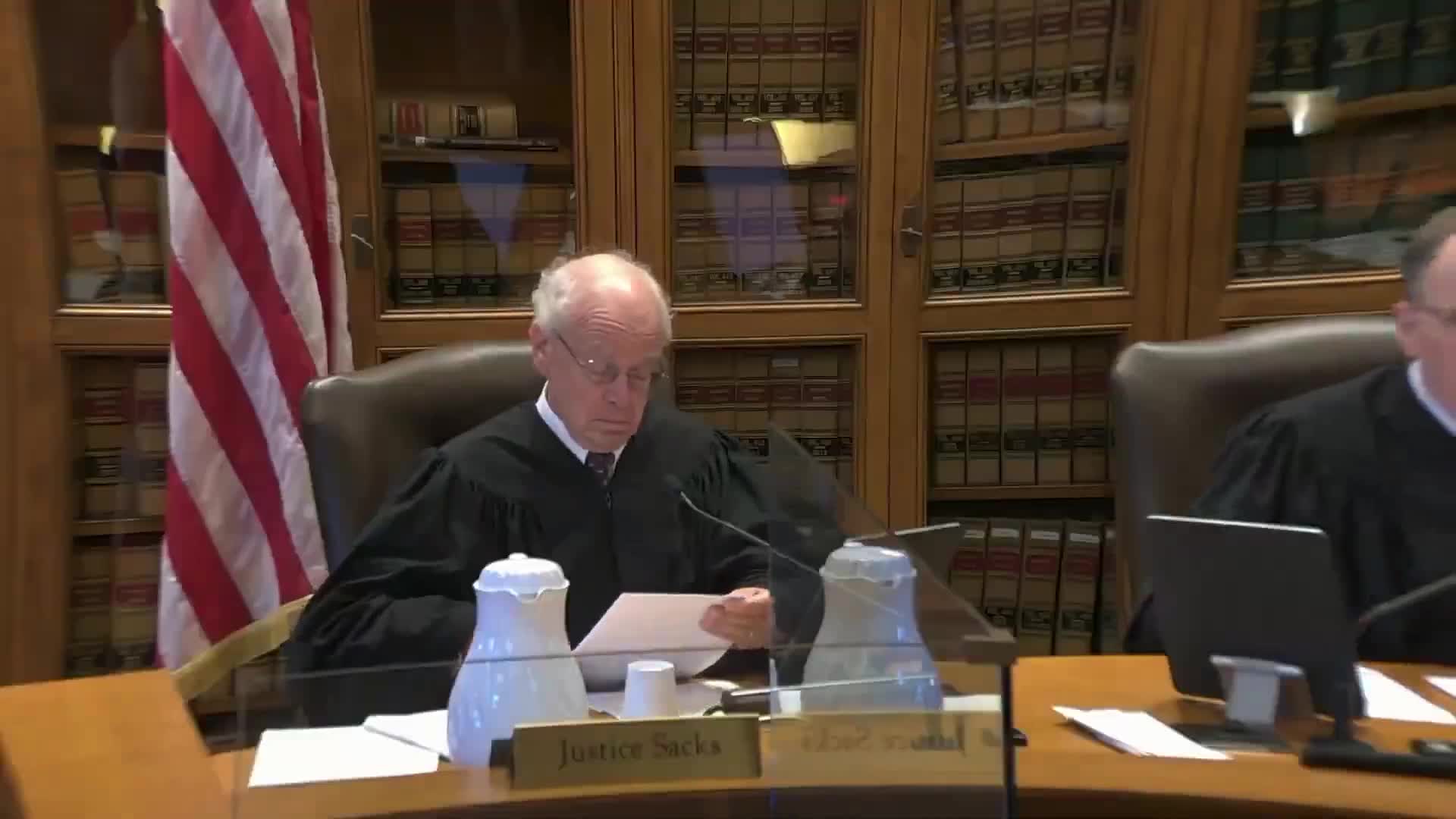Appeals court weighs whether licensing chief misapplied post-Bruen statute in denying Guinane firearm license
October 04, 2025 | Judicial - Appeals Court Oral Arguments, Judicial, Massachusetts
This article was created by AI summarizing key points discussed. AI makes mistakes, so for full details and context, please refer to the video of the full meeting. Please report any errors so we can fix them. Report an error »

The Massachusetts Appeals Court heard argument Oct. 3 in Guinane v. Fitzgerald, a challenge to a police chief's denial of a firearm license where the chief cited concerns about the applicant's household and family members.
Appellant's counsel Edward Gaynor urged the court to apply the version of the state statute amended in August 2022 following the U.S. Supreme Court's decision in New York State Rifle & Pistol Assn. v. Bruen, arguing the amended language removes "existing-factors" discretion and focuses the chief's review on "reliable, articulable, and credible information" showing the applicant's own behavior may create a danger. Gaynor said the chief in this case applied the older standard and denied a license principally because of the applicant's husband rather than the applicant's own suitability. "He would have granted it if not for her association with her husband," Gaynor said.
Town counsel Brian Riley, representing Chief Fitzgerald and the town, agreed the August 2022 statutory language governs applicants who filed after that amendment, but defended the denial on the record. Riley said the district court and superior court separately examined the evidence of neighborhood disturbance, the timing of the application (shortly after the husband's license was suspended), outstanding court orders and police responses involving the household, and concluded the chief's public-safety concerns were reasonable.
The panel asked whether the appropriate remedy is to remand so the chief can reconsider under the correct statutory text or to decide the matter on the existing record applying the amended statute. Gaynor said the fairest remedy would be reversal and instruction to issue the license immediately; the town said a limited remand to the district court or chief would be possible but that the record supports affirmance.
The transcript shows dispute over what the chief actually said in his denial letter and whether the denial rested on a belief that the applicant sought the license as a pretext to allow her husband to maintain access to firearms. Gaynor urged the court not to allow a shift of focus from the applicant's conduct to a household member. "Temporal connection does not mean causation," he said.
The appeals court submitted the case after argument. No opinion was announced at the hearing.
Why it matters: The appeal tests post-Bruen statutory language and the limits of local licensing discretion, particularly whether a licensing decision may lawfully rest on information about household members rather than the applicant's own conduct.
Appellant's counsel Edward Gaynor urged the court to apply the version of the state statute amended in August 2022 following the U.S. Supreme Court's decision in New York State Rifle & Pistol Assn. v. Bruen, arguing the amended language removes "existing-factors" discretion and focuses the chief's review on "reliable, articulable, and credible information" showing the applicant's own behavior may create a danger. Gaynor said the chief in this case applied the older standard and denied a license principally because of the applicant's husband rather than the applicant's own suitability. "He would have granted it if not for her association with her husband," Gaynor said.
Town counsel Brian Riley, representing Chief Fitzgerald and the town, agreed the August 2022 statutory language governs applicants who filed after that amendment, but defended the denial on the record. Riley said the district court and superior court separately examined the evidence of neighborhood disturbance, the timing of the application (shortly after the husband's license was suspended), outstanding court orders and police responses involving the household, and concluded the chief's public-safety concerns were reasonable.
The panel asked whether the appropriate remedy is to remand so the chief can reconsider under the correct statutory text or to decide the matter on the existing record applying the amended statute. Gaynor said the fairest remedy would be reversal and instruction to issue the license immediately; the town said a limited remand to the district court or chief would be possible but that the record supports affirmance.
The transcript shows dispute over what the chief actually said in his denial letter and whether the denial rested on a belief that the applicant sought the license as a pretext to allow her husband to maintain access to firearms. Gaynor urged the court not to allow a shift of focus from the applicant's conduct to a household member. "Temporal connection does not mean causation," he said.
The appeals court submitted the case after argument. No opinion was announced at the hearing.
Why it matters: The appeal tests post-Bruen statutory language and the limits of local licensing discretion, particularly whether a licensing decision may lawfully rest on information about household members rather than the applicant's own conduct.
View full meeting
This article is based on a recent meeting—watch the full video and explore the complete transcript for deeper insights into the discussion.
View full meeting
